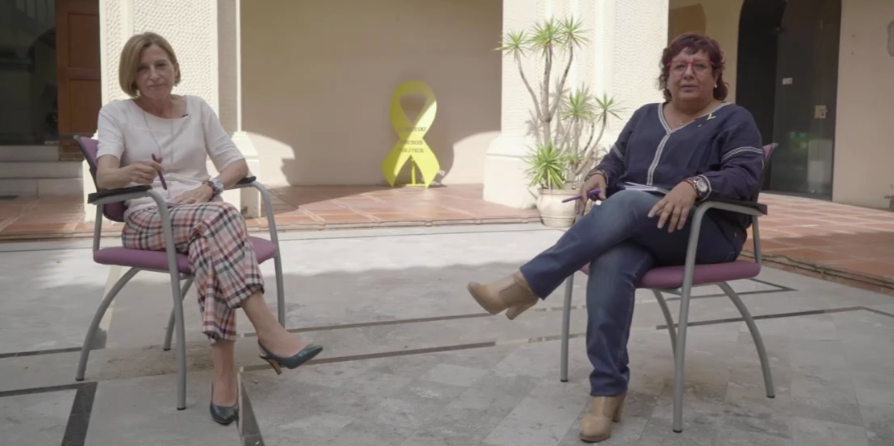06.04.2021 - 10:46
|
Actualització: 06.04.2021 - 12:46
A Catalan penitentiary court has revoked the penitentiary rights for the two female pro-independence leaders, former parliament speaker Carme Forcadell and former work minister Dolors Bassa. This means they lose their current ‘low status’ category status, enabling them to be home all week except for four nights from Monday to Thursday.
From now on they will spend most of their time behind bars, with permits of up to 36 days a year, the same categorization as the other seven 2017 referendum male leaders imprisoned. Forcadell is expected to enter the Wad-Ras penitentiary centre in Barcelona again on Tuesday evening, while Bassa will do so in the Puig de les Basses prison in Figueres – neither of them will be able to leave the institutions from Wednesday onward.
They had both been waiting for a final court decision, which could be now appealed before Spain’s Supreme Court. Their day-leave permits were approved by the Catalan government – the authority in charge of managing prisons in the country – on 30 January, and Spain’s public prosecutor appealed against them soon afterwards, which was provisionally dismissed on 23 February.
Yet, in the end, the same magistrate accepted the prosecutor’s request to revoke such rights, as another judge did with the seven male imprisoned leaders locked in Lledoners jail. The Supreme Court, the institution that would have a final say on the case if the nine officials appealed, already sided against allowing day-leave permits for any of them in December 2020 – and the top judges’ stance is the reason given now to ban the day leaves again.
Second attempt
They had been granted this semi-free status in July by the Catalan government, the administration in charge of penitentiary centres in Catalonia. Soon afterwards, Spain’s public prosecutor appealed the decision, arguing it was creating “a sense of impunity.”
While the courts were deliberating on the matter – with the ultimate decision made by the Supreme Court on Friday –, a Catalan penitentiary court decided to automatically suspend the ‘low category’ status for the seven male imprisoned officials, while another one decided to keep the privileges for the two female ones, Forcadell and Bassa. Yet, in the end, the Supreme Court ruled against them all.
Categorization of inmates are reviewed every six months in Catalonia, so pending a potential decision of Spain’s top court upholding the revocation, they could be granted the day leaves again in July this year, something which could be annulled again.


